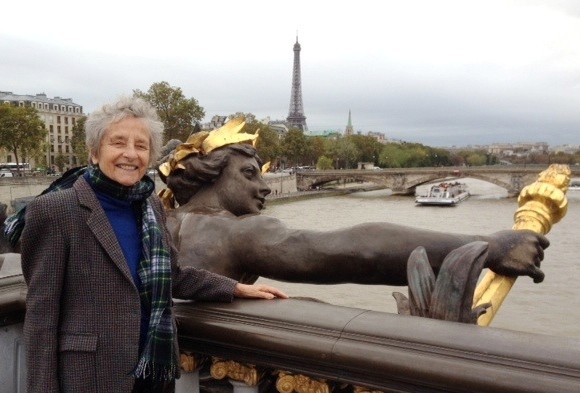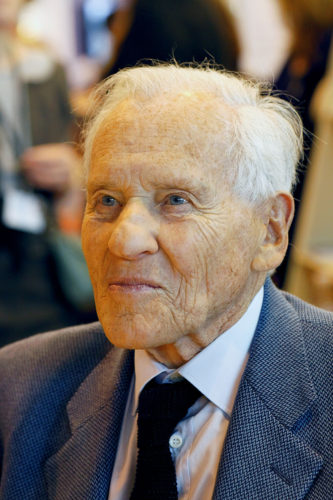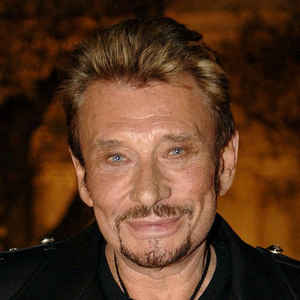
From Les Invalides to the Champs Elysees, intense emotion grips France at the passing of two iconic personalities.
Within 24 hours France lost two familiar figures: Jean d’Ormesson, 92, man of letters, and Johnny Hallyday, 74, the popular singer who, for almost 60 years, enthralled millions of fans. The intensity of the emotions was incredible. For a week, politics, wars, economic crises, were suspended and replaced by an immense sadness, which united the nation. No matter how different the two men were, they shared a great simplicity and the gift of connecting with the people.
It is not unusual for the French to express their collective grief in the public place. In 1885, two million people attended the national funerals of Victor Hugo. Simone Weil, the courageous woman who showed exceptional fortitude in her public life by being a pioneer of the right to abortion, received the highest honors by being laid to rest in the Pantheon. In 1963, a human tide surged toward the Pere Lachaise cemetery to say goodbye to Edith Piaf.

Count Jean d’Ormesson, at age 48, was the youngest “immortal” to enter the Academie Française – a literary institution created by Louis XIII to uphold the French language. He died as the dean of that 40-members council. Son of a French ambassador, d’Ormesson was part of the French aristocracy, with degrees in history and philosophy. He directed the conservative daily Le Figaro, became a prolific writer, publishing a book per year, with the last one completed three days before his death. His smiling face and piercing blue eyes were a familiar sight for the viewers of countless televised literary shows, such Bouillon de Culture, Apostrophe or La Grande Librairie.
An elegant conversationalist, he spoke with wit, lightness, and optimism. His remarks, studded with literary quotes, included gems of uplifting philosophy, such as,”Life is beautiful because we are lucky to die”, and “In the New Testament, the myth of the Wandering Jew is condemned to immortality by Jesus.”
During the strikingly sober ceremony, in the courtyard of the Invalides, a small group of guests, representing the world of politics and culture, stood stoically, whipped by a glacial wind. The eulogy given by French president Emmanuel Macron, matched the literary sophistication of the deceased academician.
Johnny Hallyday was a monument in France with an amazing longevity. From the first time he appeared on the stage at age 17, this blond, tall young man became an adulated performer and he remained a star for almost 60 years. For millions of fans, his disappearance meant the loss of a chunk of their own life. Fighting lung cancer for several years, in spite of the terrible pain, he continued performing until the very end. People thought he was indestructible, hence the extreme shock people felt when they learned about his death on Dec. 6th.
Abandoned by his father at the age of eight months, Hallyday did not grow up in the security of a proper family but bounced around from one relative to another. A cousin gave him his stage name.
Facts about his career are staggering: more than 28 million spectators attended the 3,300 concerts he gave in 40 countries; he sold 110 million records. He had a real talent in choosing the best composers and song writers, which allowed him to produce 1,000 songs, many of them in Gold albums.

Hallyday went through all the styles of music from rock n’roll, pop, blues, soul, country, and hard rock. Among the best known hits is, “Ah Marie, si tu savais, tout le mal que l’on m’a fait” (Ah, Marie, if you only knew how much they hurt me) about a young man, fighting in the WWI trenches and writing to his fiancee.
It is a paradox that, in spite of his love for the US, that country barely knew him. Driving full speed on his Harley Davidson with his buddies from the Midwest to California was one of his greatest pleasures. He sang with Sammy Davis Junior. Michel Berger wrote for him a song called “On a tous quelque chose de Tennessee” (We all have something of Tennesse.) The lyrics recall lines from “Cat on a Hot Tin Roof.”
He spent the last 10 years of his life in Los Angeles, Calif., with Tom Hanks and Ben Affleck as neighbors and only returned to France to perform in concerts. Some of his concerts became giant productions of a size never seen before. The absolute zenith of his career was right after France won the soccer World Cup in 1998 when Hallyday flew over the Stade de France by helicopter and was lowered into the hysterical crowd.
The public funeral of Hallyday was an incredible spectacle offered to millions of fans. The cortege moved slowly down the Champs Elysees, led by a white coffin. This was followed by a caravan of black limousines filled with family, close friends and dignitaries and then – even for people who do not particularly like motorcycles – the incredible sight of 700 bikers, who had come from all over France.
On the steps of the Madeleine church, President Emmanuel Macron, paid his respects to the rock star and invited the crowd to bid farewell to “Mr. Johhny Hallyday.”
Editor’s Note: This is the opinion of Nicole Prévost Logan.

Nicole Prévost Logan
About the author: Nicole Prévost Logan divides her time between Essex and Paris, spending summers in the former and winters in the latter. She writes a regular column for us from her Paris home where her topics will include politics, economy, social unrest — mostly in France — but also in other European countries. She also covers a variety of art exhibits and the performing arts in Europe. Logan is the author of ‘Forever on the Road: A Franco-American Family’s Thirty Years in the Foreign Service,’ an autobiography of her life as the wife of an overseas diplomat, who lived in 10 foreign countries on three continents. Her experiences during her foreign service life included being in Lebanon when civil war erupted, excavating a medieval city in Moscow and spending a week under house arrest in Guinea.